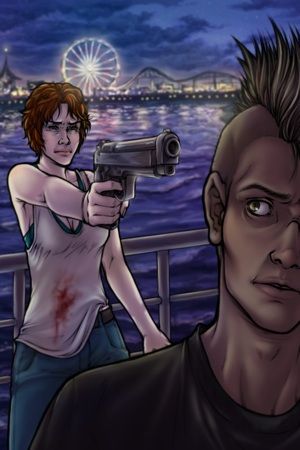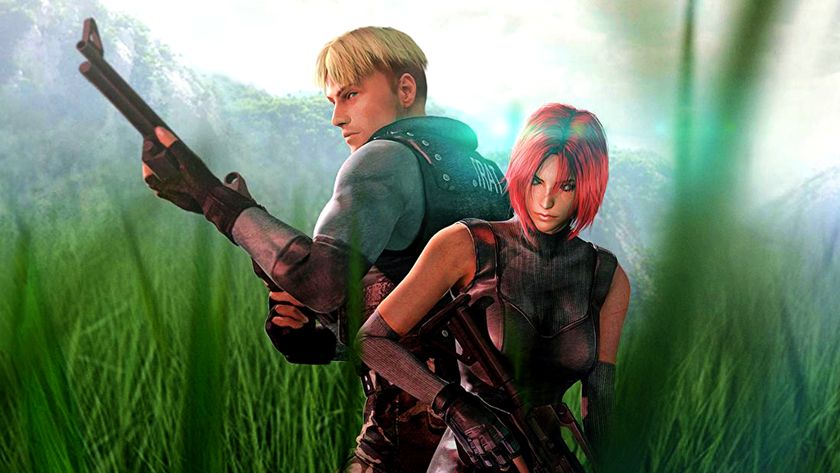Let's delve this week into the murky world of pen and paper roleplaying games. More specifically into the head of game writer and designer David A Hill Jr, who kindly agreed to be interviewed by Troo Topham for this blog...


Why not begin by telling us a little bit about yourself?
Sure. My name’s David A Hill Jr. I co-own Machine Age Productions , with my wife Filamena Young. We produce pen and paper roleplaying games. She and I are both active in the RPG industry outside of Machine Age. I personally have written and developed for many of the major publishers of roleplaying games, and have contributed to some well-known game lines such as Vampire The Requiem , Eclipse Phase , Shadowrun and Dragon Age .
What made you decide that, out of all possible careers, writing roleplaying games was the right one for you?
Who said it is? Kidding. I adore it. I always have. I came to realise that my hobby was less playing roleplaying games, more making them. There came a time when I started to see the way game rules and settings manipulate interactions and shape experiences. That’s more or less the most interesting thing about games, and I like exploring that. When I wrote some things as an amateur, and players across the globe told me how it informed the behaviour at their table, I was hooked. I realised I was doing the thing for me.
How did you get started?
Sign up to the SFX Newsletter
Get sneak previews, exclusive competitions and details of special events each month!
I got started by happenstance. My wife Filamena was doing some freelance writing for White Wolf Publishing. There was a small gap in a product, because someone pulled out of the project. I jumped in to fill it. I guess I didn’t do too badly, because I kept getting work.
On the publishing side, there came a point where I decided I didn’t want my success or failure to be tied to other peoples’ ideas. I still love writing for other RPGs, but I needed to stand on my own qualities alone as well.
You do a lot of work on the darker side of roleplaying games. Are you drawn to horror?
Absolutely. The first book I read from front to back was Stephen King’s Cujo, because I grew up in a truck with my mother, where I only had her novels to learn from. When I decided to write, it was because of King’s On Writing . Before that book gave me perspective, I thought only artsy types could write.
I like to be moved. For me, the easiest way to move me is to scare me. So, it happens to be that most of what I like happens to be horrific.
Your first fully-fledged RPG was Maschine Zeit , wasn't it? What did you learn from developing an entire gameworld, complete with its own mechanics?
I learned enough to write a second game. In all seriousness, I learned a lot of very specific lessons. A lot of what I learned comes down to balance. Maschine Zeit was intentionally vague; the purpose of the game’s setting information was to inspire improvisation and world-building around the table. I think I could have coupled that with a bit more game mechanic information geared toward that. The language in Maschine Zeit was very assumptive for that reason. Sometimes it's hard to find the balance between handholding readers, and making them do all the work.
You’re working on a new game now. Spill the beans, David. What’s it about, and what’ve you learned from Maschine Zeit that's helping Amaranthine ?
Amaranthine ’s a game about people for whom death is only temporary. When they die, they come back in different bodies, in different places, at different times. They see the world over and over. Now, in 2011, they have the ability to recall their past victories in order to do greater things in the immediate.
Our game’s mechanics are more geared toward risk than success or failure. Amaranthine are amazing, and will most certainly succeed at most tasks. We care more about what they’re willing to put on the line. Amaranthine 's a game about relationships; success means putting those relationships on the chopping block. In Amaranthine , action and relationships go hand in hand. Vendettas and romances are intertwined. Nothing is without consequence.
As far as our lessons go, I think Maschine Zeit is a distinctly different animal from Amaranthine . In fact, it’s almost an opposite case in every consideration. Maschine Zeit was a very simple game, made to learn very quickly, and to do one thing well. Amaranthine is a much more detailed game, that has nuance and detail to the rules system. Most importantly, it does a wide range of styles. You can do horror. You can do romance. You can do action. You can do mystery. It supports many play preferences. Also, Maschine Zeit ’s setting was much more implied. Amaranthine is a toolkit still, encouraging players to build onto the setting, but much of the establishment already exists when you open the book. I like to approach it as Maschine Zeit ’s setting being scaffolding, Amaranthine has most of your set dressing.
With both games, I used Kickstarter to raise funds, take preorders, and otherwise determine the game’s budget. So far, Amaranthine is doing significantly better than Maschine Zeit . I think our brand is really standing and speaking for itself now. Crowdsourcing is really the way publishing seems to be moving, from my perspective. Instead of focusing on nickel and diming people, and worrying so much about piracy, crowdsourcing allows quality products to stand out. That’s why all our products are licensed under Creative Commons licenses; gaming is a community. I figure there are some people that will support the hobby, and there are some that simply exist within that community. Instead of bothering with the people that aren’t supporting the hobby, I can focus on connecting with the people that do. I love seeing our games in as many hands as possible. Sharing games is how attention gets drawn to projects, and that’s why Amaranthine is doing well. I've personally been told by some of our Amaranthine backers that they heard of us from a friend that gave over a pirated PDF of Maschine Zeit . That pleases me.
SFX Magazine is the world's number one sci-fi, fantasy, and horror magazine published by Future PLC. Established in 1995, SFX Magazine prides itself on writing for its fans, welcoming geeks, collectors, and aficionados into its readership for over 25 years. Covering films, TV shows, books, comics, games, merch, and more, SFX Magazine is published every month. If you love it, chances are we do too and you'll find it in SFX.

















